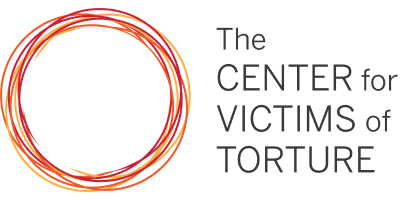CVT has extended rehabilitative care to refugee survivors of torture living in Ethiopia since 2012. We established our first centers in the country caring for Eritrean refugees who were living in the Mai Ayni and Adi Harush camps in the Tigray region. Our work was recognized in the region, and we have expanded to answer the call for help in several additional locations. We have also adapted to changes resulting from armed conflict in Tigray, working to meet the needs of people who have experienced traumatic situations in a number of locations.
In 2025, CVT’s work in Ethiopia was reduced as a result of funding cuts, and we currently offer care to survivors living in Tigray.
CVT has given me life –they showed me I have dignity, that I can still live.”
-Yonas, former CVT Ethiopia client from Eritrea
CVT Ethiopia is widely known and respected for effective and unique care for survivors of deeply traumatic experiences. The team works closely within the communities we serve, in many cases conducting assessments before setting up mental health and psychosocial support (MPHSS) centers. The team conducts psychoeducation sessions within refugee camps, sharing information about the symptoms of mental health problems and about CVT’s services. In many locations, CVT is the only mental health care provider in the area.
CVT Ethiopia works with adults and children, conducting 10-week counseling sessions that establish stability and then work to process trauma. Clients tell staff that the care is life-changing; many former clients take steps to bring people to CVT so that each of them can get the care that they received.
Addis Ababa
- CVT Ethiopia handles logistics and administration out of our office in the country capital.
Tigray
- Began extending rehabilitative care to Eritrean refugees in 2012.
- We also operate various sites including the Mai Ayni and Adi Harush refugee camps.
- There are more than 2.6 million IDPs and more than 300,000 others (refugees and asylum seekers).
“CVT gave me a permanent medicine.”
— Kidane, former CVT client
